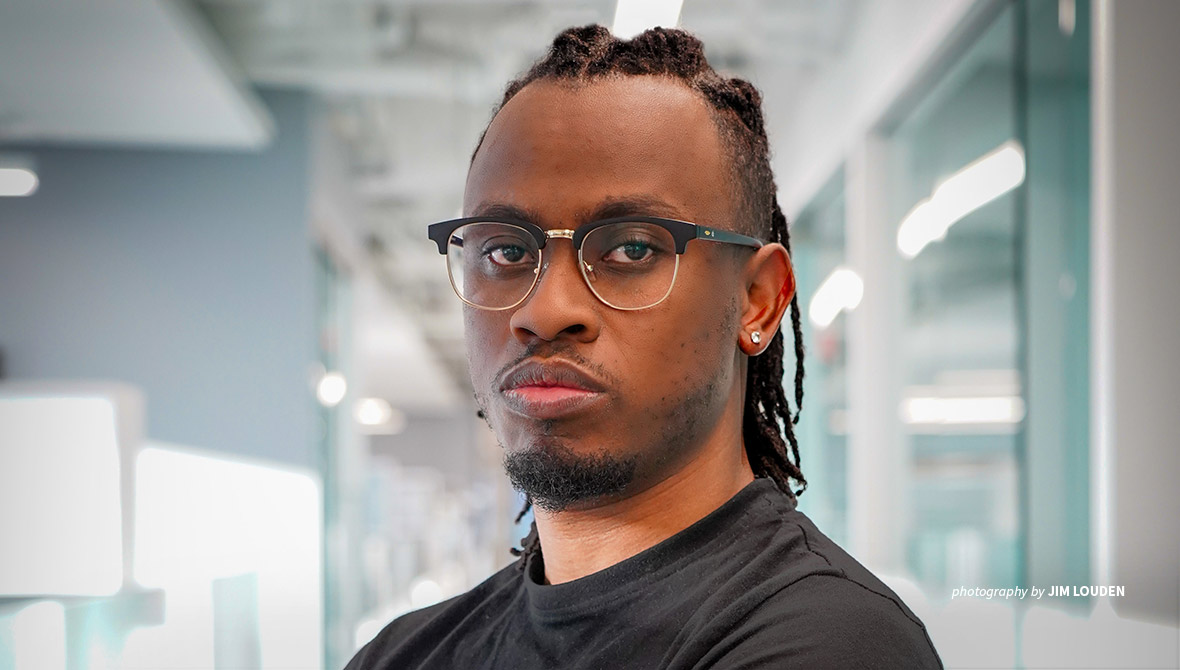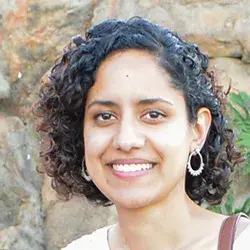Centering African voices and perspectives in conservation filmmaking

African Wildlife Foundation's Ariel Gakunga oversees the African Conservation Voices program and Media Labs
Ariel Gakunga, Manager, Field Communications, Storytelling, and Production at African Wildlife Foundation (AWF), oversees the organization’s groundbreaking program to support African storytellers. The African Conservation Voices Media Labs has produced six films that premiered at the Jackson Wild Summit in Austria last September. Gakunga shares how bringing African perspectives into the foreground and behind the camera changes the conservation narrative.
What is the African Conservation Voices program?
AWF and Jackson Wild partnered in 2021 to mentor and train storytellers through virtual sessions and field-based activities to build African representation in the media, particularly in conservation and nature films based in Africa. We selected 36 filmmakers, writers, podcasters, and photographers from Kenya and Rwanda. We supported the production of six short films based on local community and conservation heroes in the Maasai Mara and Volcanoes National Park.
The African Conservation Voices Media Labs films are a tangible media product showing how Africans co-exist with nature and have taken charge of developing solutions to address conservation challenges — whether they are ecologists, custodians of wildlife, or community members. The films are the springboard for conversations about topics and people typically sidelined in mainstream media about Africa’s wildlife and natural ecosystems. While bringing these characters into the spotlight, the program has allowed early-career filmmakers to sharpen their skills and widen their networks in conservation filmmaking.
How did the African Conservation Voices films come together?
The production process was intensive! After six weeks of grueling virtual workshops, the fellows had just five days in the field, working closely with mentors — esteemed filmmakers and producers from diverse backgrounds — to shoot and produce rough cuts of their short films. The teams then had additional post-production workshops that saw the movie go over the line and premiere at the Jackson Wild Summit 2022.
I loved watching how the films brought the fellows together and built camaraderie. They would always troubleshoot together as a collective, and there was an intimate understanding of each other’s strengths and weaknesses. Seeing the fellows consistently rise above all these challenges and produce such beautiful films was exhilarating.
What challenges do natural history filmmakers in Africa face?
The biggest challenge is access. Filming for long periods in protected and conserved areas can be rather costly, especially when there is no guarantee that you will spot that lion kill on your first game drive. At the same time, the training, equipment, and software required for film projects are sometimes prohibitively priced. Another challenge is the lack of opportunities to grow the professional networks of African filmmakers.
The African Conservation Voices program sought to address these issues by ensuring all the fellows had access to protected and conserved areas and received training, equipment and software. We also took the fellows to the Jackson Wild Summit 2022, the largest gathering of natural history filmmakers in the world, and gave them access to professional networks. In fact, many of the fellows have been commissioned to work on projects through connections made at Jackson Wild. Without training and mentorship programs like the African Conservation Voices Media Labs, they probably would not have been able to sit at the table and lend their unique perspectives to these projects.
Why is it important for more African filmmakers to join the community?
Centering African voices and perspectives in conservation storytelling helps us focus on the people of the continent, shed light on the nuances, and change the conservation narrative. We need to shift how the world looks at our continent by sharing the stories that often go untold. To dignify the characters whose stories we tell, and to shine a light on the heroes and heroines providing solutions in our communities.
How has African Conservation Voices impacted your journey as a filmmaker?
My introduction to film happened when I was a second-year design student. Since then, I have made a few fictional short films — one of which premiered and screened at the 70th Cannes Film Festival — and produced advertisements at an agency. Before joining AWF in 2020, I could not fathom that there was a space in the conservation sector for me — an urban youth working in the digital space.
However, AWF’s approach to conservation and their recognition of the false choice between conservation and development was moving. The idea that both people and wildlife should thrive together redefined my understanding of conservation. As one of the mentors to the fellows during the Media Labs, it was an honor to pass on my knowledge and be a part of their journey as their careers grow.
> Watch the six short films produced by AWF’s African Conservation Voices fellows
